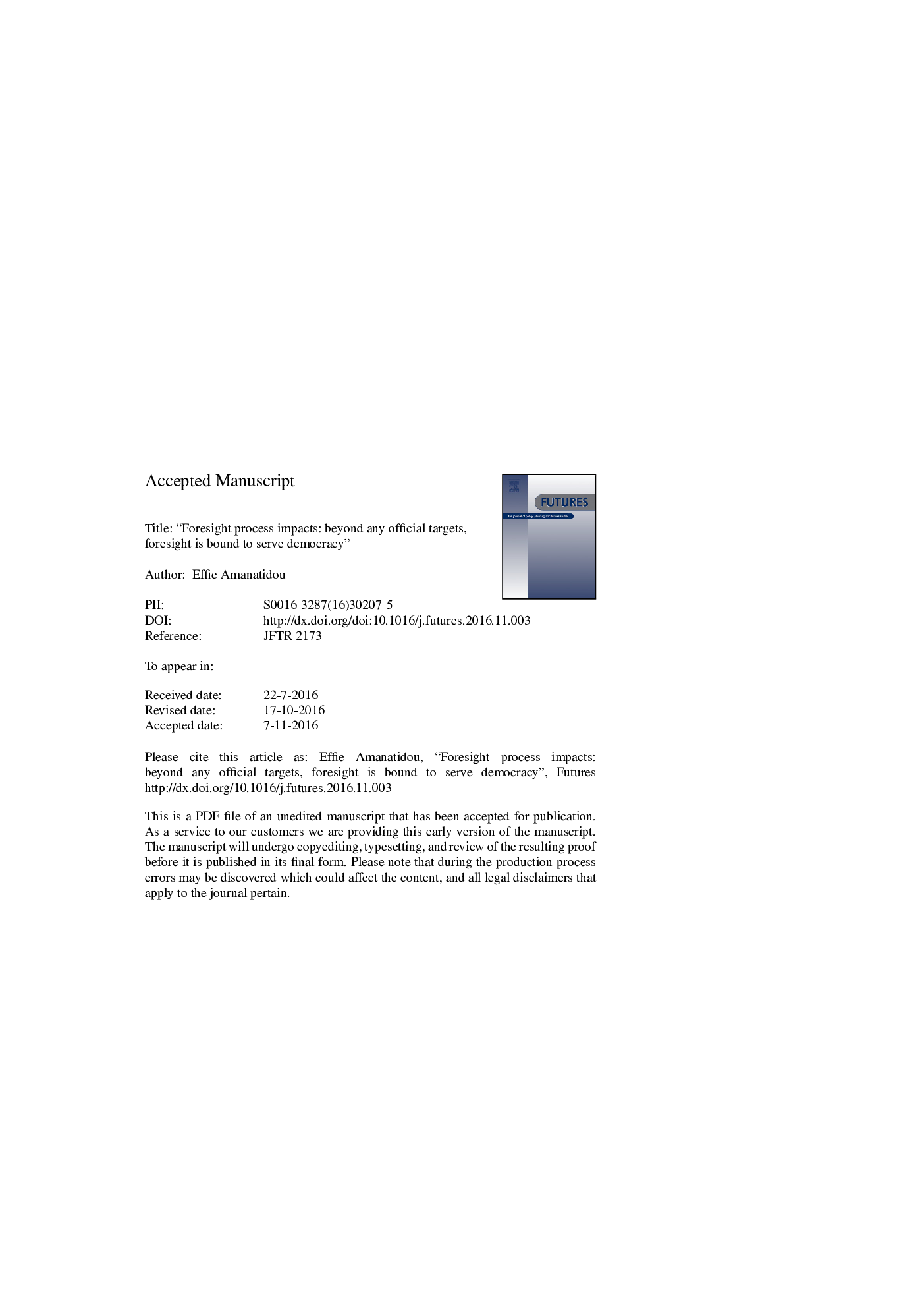| Article ID | Journal | Published Year | Pages | File Type |
|---|---|---|---|---|
| 5109190 | Futures | 2017 | 28 Pages |
Abstract
Foresight is usually criticised for having a limited direct impact on policy-making. Although contexts play a significant role, this may be true to a certain extent. It is also true, however, that the value of foresight has been under-explored. The purpose of the paper is to show the value of foresight in contributing to the development of more participatory societies irrespective of the specific 'official' objectives it is designed to serve. The methodology included the creation of a specific impact assessment framework and the assessment of certain foresight exercises (FNR Foresight and eFORESEE Malta) in terms of contribution to more participatory societies through case studies. The assessment showed that although contributing to more participatory societies was not among the main aims of the particular exercises, they managed to achieve certain impacts facilitating increased public participation or directly improving democratic processes in policy-making. Foresight is 'by default' devised to promote democratic processes through inclusiveness, openness, transparency, public engagement, and multi-stakeholder approaches.
Related Topics
Social Sciences and Humanities
Business, Management and Accounting
Business and International Management
Authors
Effie Amanatidou,
